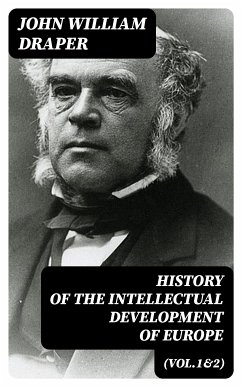In "History of the Intellectual Development of Europe," John William Draper embarks on an ambitious exploration of the evolution of human thought from the Middle Ages to the dawn of modernity. Draper employs a didactic literary style that is both engaging and rigorously analytical, deftly weaving together historical events, philosophical advancements, and scientific progress to elucidate the intricate tapestry of European intellectual history. The work reflects the burgeoning spirit of the Enlightenment, encapsulating the tension between religious dogma and emerging scientific rationalism, while also addressing the socio-political context that fostered or hindered intellectual pursuits. John William Draper, an American physician, chemist, and historian, was profoundly influenced by the Age of Enlightenment and its emphasis on reason and empirical evidence. His diverse background in science and philosophy complemented his deep interest in the history of ideas, leading him to confront the prevailing religious orthodoxy with a scientific lens. Draper's passion for education and his commitment to advancing knowledge are evident throughout the text, making it not only a historical account but also a manifesto for rational thought. This landmark work is an essential read for anyone interested in the interplay of science, philosophy, and history. Draper's meticulous scholarship invites readers to ponder the trajectory of human thought and its implications for contemporary society. Both scholars and casual readers alike will find in Draper's narrative a compelling argument for the importance of intellectual freedom and the relentless quest for understanding.
Dieser Download kann aus rechtlichen Gründen nur mit Rechnungsadresse in A, B, BG, CY, CZ, D, DK, EW, E, FIN, F, GR, H, IRL, I, LT, L, LR, M, NL, PL, P, R, S, SLO, SK ausgeliefert werden.









